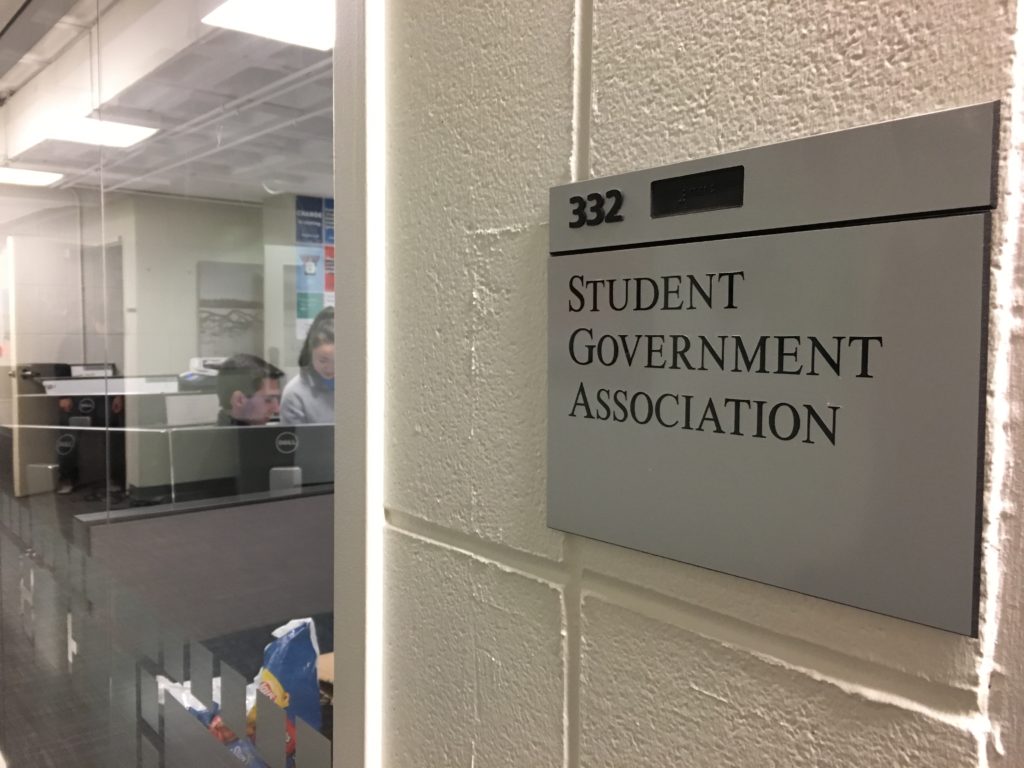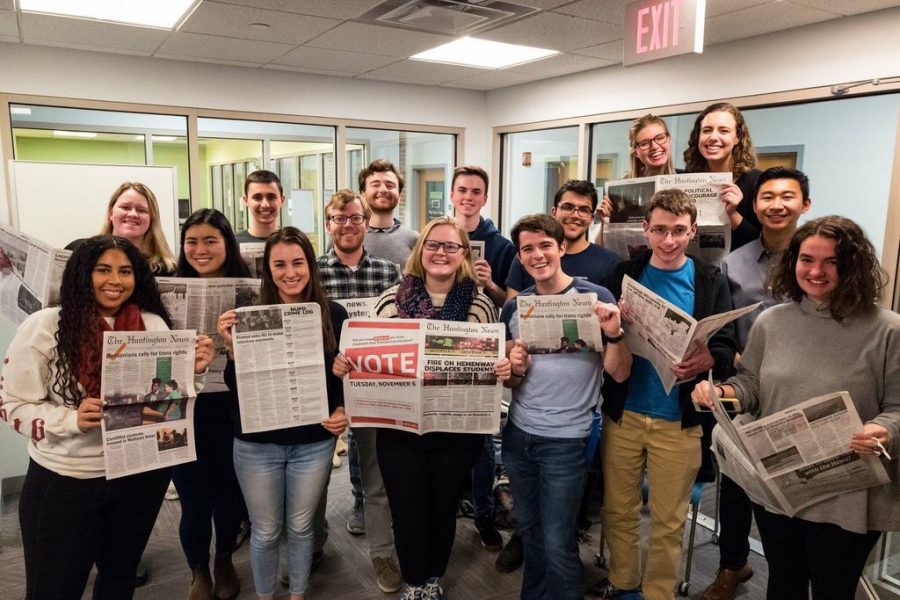Student Government Association (SGA) elections this year were contentious and dramatic. They entered the spotlight in a way that most of us at The Huntington News haven’t seen in our time at Northeastern. Though election results have now been released, it is far from time to stop paying attention to SGA. With elections over, it’s worth examining our student government’s infrastructural issues.
The process for becoming a senator is a good place to start. It is fairly easy, but also fairly unstructured. Any interested student need only fill out a form and collect 30 signatures, or at least three-fourths the size of the membership of the organization they intend to represent if it has fewer than 30 members. As a result, senators are not really representative of the student body.
The College of Arts, Media and Design only has one senator in SGA. The D’Amore-McKim School of Business and College of Engineering, meanwhile, each have 10 senators. The undeclared program has no senators at all.
There are 30 special interest senators, each one representing a student organization. By the university’s own account, there are more than 400 clubs on campus, although some of those are now inactive. According to Northeastern University Decision Support, total undergraduate enrollment for the current academic year is 17,894. SGA senators—of which there are 66—comprise less than 0.4 percent of the student body.
Although all senators’ e-mails are listed on the SGA website, most students have little contact with their SGA senators. No current member of The Huntington News’ editorial staff has ever been contacted by their senator in the context of a senator-constituent relationship. Senators mostly deal with internal SGA affairs, and they have little incentive to report to the students they represent.
The senatorial process is not the only structural issue SGA faces. This year’s elections process brought some critical problems with the Direct Elections Manual (DEM) to the forefront. When a referendum question created by Students Against Institutional Discrimination (SAID) was misprinted online for the first 14 hours of voting, there was no instruction as to how the issue should be resolved for the affected votes. As a result, SGA held hearings to determine the best solution, voting was extended by four days and the first 1,500 votes were invalidated.
During the process, parts of the DEM were suspended in order to deal with the situation. The document itself did not have any information on how to handle a potential re-vote, partial or full, for any reason. It simply is not comprehensive enough, especially considering its status as governmental procedure.
Student Body President Elliot Horen acknowledged in a public Facebook post that it was “reasonable to expect that SGA would have policies in place for situations like these.” He assured students that such policies would exist in the future. With Horen leaving office at the end of the semester, however, it is on students to ensure that the new SGA representatives keep that promise.
Suchira Sharma and Paulina Ruiz will take over as student body president and executive vice president, respectively. All undergraduates should be compelled to maintain contact not only with them, but also with their senators (given that they have any), to implement necessary reforms.
Leaders in SGA know about many structural issues and are working to reform them. Last fall, the number of times SGA was allowed to publicly address the student body increased from two to eight times per calendar year. Horen meets with Assistant Vice President of Student and Administrative Services Marina Macomber on a weekly basis. Macomber reports to Vice President of Student Affairs Madeleine Estabrook, who reports to Senior Vice President and CEO of Northeastern’s Professional Advancement Network Philomena Mantella. Finally, Estabrook communicates directly with President Joseph E. Aoun.
Our student government is meant to be a bridge between the undergraduate student body and the school administration. We appreciate the sitting senators, delegates and board members working to make that a reality. We must draw attention, however, to the lack of transparency surrounding interactions between SGA and the administration. Over the years, a number of referenda have been passed—notably, a referendum to divest the university’s endowment fully from fossil fuels—and never implemented. Within SGA, at least one committee has recommended that the Student Conduct Board process be amended so that students do not judge cases of alleged sexual assault.
Speaking not only as journalists, but as students and constituents, we find it necessary that our student body have a shared understanding of how our student government functions. We believe that robust relationships along the chain, from students to SGA to the university administration, are of paramount importance. We understand that it’s on us to hold both our student government and our school to account by staying in touch with our representatives and communicating our desires to them.
Neither SGA nor the Northeastern University administration should be allowed to exist behind swaths of red tape if this institution is to serve its students.















